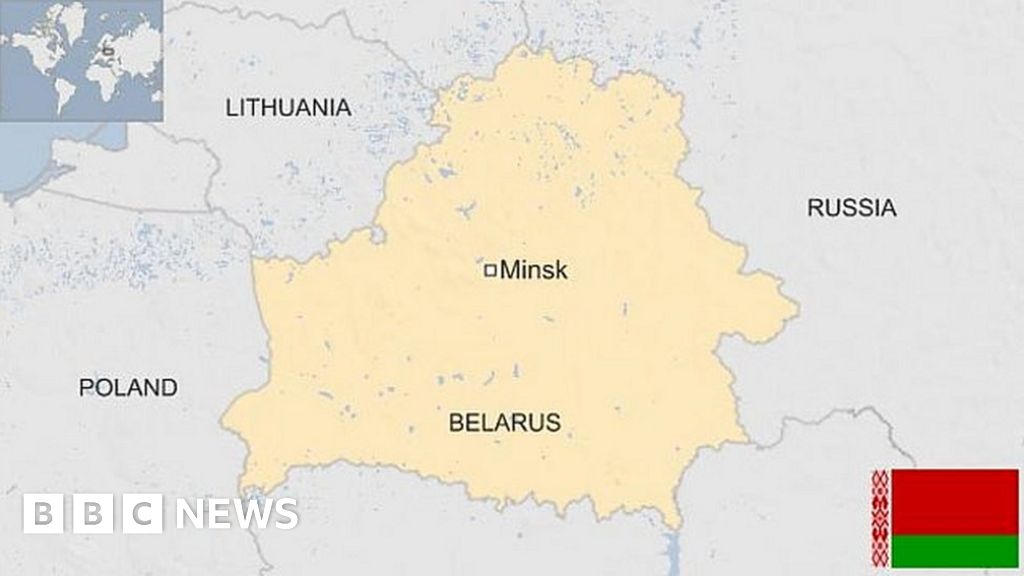Key dates in the history of Belarus:
1918 – Towards the end of World War One, Belarus proclaims its independence as the Belarusian National Republic.
1919 – The Russian Red Army conquers Belarus, and establishes communist rule.
1921 – The Treaty of Riga divides Belarus between Poland and Soviet Russia.
1930s – Belarus suffers heavily from the purges of intellectuals and political opponents ordered by Soviet dictator Joseph Stalin. More than 100,000 people are executed in Belarus, and thousands more sent to labour camps.
1941 – Nazi Germany invades during the course of World War Two. More than one million people are killed during the occupation, including most of the large Jewish population.
1944 – The Soviet Red Army drives the Germans out of Belarus.
1960s – A policy of Russification relegates the Belarusian language and culture to second-class status.
1986 – Belarus is heavily affected by the fall-out from the nuclear explosion at Chernobyl in neighbouring Ukraine. Around 20% of agricultural land is contaminated and rendered unusable.
1988 – The Belarusian Popular Front formed as part of nationalist revival prompted by Soviet leader Mikhail Gorbachev’s political liberalisation.
1990 – Belarusian becomes the official state language.
1991 – Belarus declares its independence as the Soviet Union breaks up.
1994 – Alexander Lukashenko wins the first presidential election on a campaign of fighting corruption and re-establishing close ties with Russia.
1995 – Friendship and cooperation pact signed with Russia, and referendums restore Russian as co-official language and boost the president’s powers.
2001 – Lukashenko re-elected to serve second term. Opposition and Western observers say elections are undemocratic.
2004 – Referendum backs change allowing president to serve more than previous limit of two terms. Opposition parties fail to win a single seat in parliamentary elections held at same time. Western observers say vote is neither free nor fair.
Street protests ensue. Demonstrators clash with police and dozens are arrested.
2004 – EU extends travel restrictions on senior officials. US imposes sanctions.
2006 – Lukashenko declared winner by landslide in elections condemned as unfair by Western observers.
EU imposes visa ban on Lukashenko and numerous ministers and officials.
Defeated presidential election candidate Alyaksandr Kazulin convicted of hooliganism and incitement to mass disorder and is jailed for five and a half years.
2008 – Former opposition presidential candidate Alyaksandr Kazulin and two other dissidents freed from prison.
EU lifts its travel ban on Lukashenko in an attempt to encourage democratic reform, a month after US does the same.
2010 – Lukashenko declared winner in presidential elections. Opposition and western observers allege vote rigging. Mass protests in Minsk are broken up by force, with 600 arrests.
2011 – EU reinstates a travel ban on Lukashenko and freezes his assets, while the US imposes stricter financial controls and widens its travel bans on senior officials.
Explosion hits a busy metro station in Minsk, killing 15. President Lukashenko alleges a plot by “fifth columnists” to destabilize the country. Two suspects are executed.
Opposition leader Andrey Sannikau is sentenced to five years in prison for organising protests over the presidential elections.
2012 – Opposition activists Andrei Sannikau and Zmitser Bandarenka are released from prison early, but others remain in jail.
2014 – Belarus asks Russia to deploy extra military aircraft to its territory after Nato boosts its forces in the neighbouring Baltic countries amid increasing tension caused by Russia’s annexation of Crimea.
2015 – Lukashenko wins fifth presidential term. No significant opposition candidate is allowed to stand.
2020 – Mass protests after the opposition says the latest presidential election was rigged in Lukashenko’s favour.
2022 – Belarus allows its territory to be used by Russia’s army to launch attacks into northern Ukraine as part of Russia’s invasion of Ukraine.
Source link : https://www.bbc.com/news/world-europe-17941131
Author :
Publish date : 2024-02-26 08:00:00
Copyright for syndicated content belongs to the linked Source.
